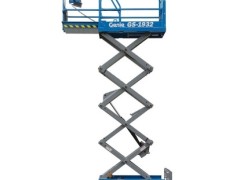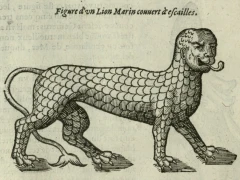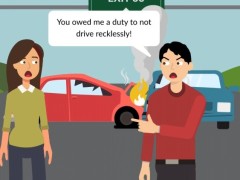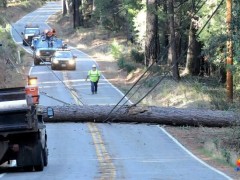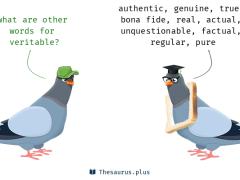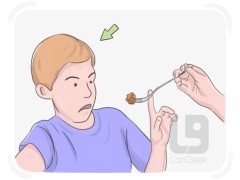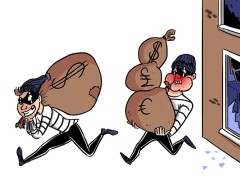lift [lift] n. 电梯
* * *
A: Is there a lift here?
B: Yes, there is one in that corner.
A:你们这儿有电梯吗?
B:有,在那边的拐角处。
* * *
monstrous [ˈmɔnstrəs] adj. 极大的,可怕的
negligence [ˈneɡlidʒəns] n. 粗心大意
【扩】carelessness 粗心 inattention 疏忽
【搭】a piece of negligence g 一次疏忽
* * *
A: He was sharply reprimanded for his negligence.
B: I think he will be more careful in the future.
A:他因玩忽职守而受到严厉的训斥。
B:我想以后他会更小心的。
* * *
prudent [ˈpruːdənt] adj. 谨慎的
【扩】prudential 谨慎的 canny 谨慎的
【例】We must always remain modest and prudent.
我们要永远保持谦虚谨慎。
composure [kəmˈpəuʒə] n. 镇静,沉着
【扩】calm 镇静 composure 镇静
【搭】regain composure 恢复镇静
【例】He was obviously very shocked, but he soon regained his composure soon.
显然他很震惊,但很快就恢复了镇静。
intruder [inˈtruːdə] n. 入侵者
lurk [ləːk] v. 潜藏
【派】lurker 潜伏者
* * *
A: I don't know what lurks in his mind.
B: I think nobody knows that.
A:我不知道他心里藏着什么。
B:我想没有人知道。
* * *
hinder [ˈhində] v. 妨碍
fingerprint [ˈfiŋɡəˌprint] n. 指纹
【扩】finger mark 指纹
【搭】leave one's fingerprint 留下指纹
【例】When the police found his fingerprint he knew that he would be in trouble.
警方发现了他的指纹后,他知道自己要有麻烦了。
chaos [ˈkeiɔs] n. 混乱,无秩序
【扩】confusion 混乱
【搭】in chaos 处在一片混乱的状态之中
* * *
A: The failure of electricity supplies made the city in chaos.
B: People can hardly live a comfortable life without electricity today.
A:停电使得城市一片混乱。
B:在当今社会,没有电,人们很难过得舒服。
* * *
inconceivable [ˌinkənˈsiːvəbəl] adj. 不可思议的
【扩】miraculous 不可思议的 unimaginable 意想不到的
* * *
A: That event was inconceivable to us.
B: But we have to face it now.
A:那事件是我们所想象不到的。
B:但我们现在必须面对它。
* * *
veritable [ˈveritəbəl] adj. 真正的,地地道道的
magpie [ˈmæɡpai] n. 喜欢收藏物品的人
toss [tɔs] v. 扔
discard [diˈskɑːd] v. 丢弃
【扩】reject 丢弃
* * *
A: It's a bad manner to discard your things everywhere.
B: Sorry, I will correct it.
A:把东西扔得到处都是是一个不好的习惯。
B:对不起,我会改的。
* * *
constable [ˈkʌnstəbəl] n. 警察
ransack [ˈrænsæk] v. 洗劫
balcony [ˈbælkəni] n. 阳台
【扩】veranda 阳台
【例】The prospect from the balcony is breathtaking.
从阳台上看去景色美极了。
fussy [ˈfʌsi] adj. 大惊小怪的,小题大做的
【扩】spoffish 大惊小怪的,小题大做的
【搭】fussy eater 挑食的人
* * *
A: I suppose I'm just a little too fussy!
B: No, you did it well.
A:我想我有点过于小题大做了!
B:不,你做得很好。
verb [vt. 及物动词]提起,举起;抬起(身体某一部位);空运;解除,撤销;高兴起来,使更愉快;消散,消失;偷盗,盗窃;剽窃,抄袭;挖出,拔起(蔬菜或植物);提高(嗓音);提高,增加;使更有趣;(个人、运动队的)晋级;赢得(奖品或比赛) - The colonel lifted the phone and dialled his superior.
noun [具体名词]电梯,升降机;免费搭车,搭便车;鼓舞,振奋;抬,提;(空气的)升力,提升力;(飞机的)最大提升重量;高飞(投出的球触地反弹时急速上升);后跟垫,插跟 - We took the lift to the fourteenth floor.
take a bus/taxi/lift 乘公共汽车/乘出租汽车/搭便车
wants to take a lift. 某人想搭便车
- I want to take a lift.
- A give B a lift. 让某人搭便车
- The student gave me a lift.
thumb lift 拇指便车(向过路车辆竖起拇指表示要求免费搭车)
lift a basket / box 拎着篮子
adjective [原级]不公正道德的,残忍的;巨大的,庞大的;丑陋的,骇人的 - His monstrous pearl was extremely valuable.
noun [专属名词]疏忽,大意;<法律>玩忽职守 - The soldiers were ordered to appear before a disciplinary council on charges of negligence.
adjective [原级]谨慎的,慎重的;节俭的 - It is clearly prudent to take all precautions.
noun [抽象名词]镇静;沉着 - She was a little nervous at first but she soon regained her composure.
noun [专属名词]闯入者,侵入者;不速之客 - Armed guards wrestled with the intruder.
verb [vi. 不及物动词]vi. 潜伏;潜藏;埋伏 - He thought he saw someone lurking above the chamber during the address.
noun [专属名词]潜伏;埋伏 - Hidden dangers lurk in every family home.
verb [vt. 及物动词]阻碍,妨碍 - Further investigation was hindered by the loss of all documentation on the case.
adjective [原级](尤指身体部位)后面的 - It will only slow you down and hinder your career goals.
| hamper vt. 妨碍;束缚;使困累 | The bad weather hampered rescue operations. 恶劣的天气阻碍了救助行动。 |
|---|---|
| impede vt. 阻碍;妨碍;阻止 | They impede personal exploration. 他们阻碍个人的探索。 |
| put sand in the wheels of … | These days, it is differences in national regulations, far more than tariffs, that put sand in the wheels of trade between rich countries. |
| put obstacles in the way of … | The tax puts obstacles in the way of companies trying to develop trade overseas. |
| stand in the way of … | The British government would not stand in the way of such a proposal. |
noun [专属名词]指纹,手印;区别性特征;指纹图谱 - The detective discovered no fewer than 35 fingerprints.
verb [vt. 及物动词]指纹采样 - He took her to jail, where she was fingerprinted and booked.
noun [抽象名词]混乱,无秩序状态;混沌 - The world's first transatlantic balloon race ended in chaos last night.
adjective [原级]不可思议的;难以置信的;不能想象的;非凡的 - It was inconceivable to me that Toby could have been my attacker.
noun [专属名词]露台,阳台;楼座,楼厅 - All rooms have a balcony or terrace.
adjective [原级]真正的,名副其实的 - The meal that followed was a veritable banquet.
adjective [原级]爱挑剔的,难取悦的;过分装饰的,过于繁琐的;紧张不安的;<美>婴儿爱哭的 - She is not fussy about her food.
noun [专属名词]【名】 (法)菲西(人名) - Fussy is not fussy about her food.
noun [专属名词]鹊,喜鹊;饶舌的人;有收集零碎东西癖好的人 - But magpie would not go to California.
adjective [原级]鹊的;有收集癖的;斑驳的,混杂的 - The magpie recovered, so I decided to drive it to where it was found.
- magpie n. 含义1:喜鹊
- magpie n. 含义2:person who chatters a lot 爱饶舌的人
- magpie n. 含义3:person who collects or hoards things 爱收集或贮藏东西的人
| He is a bear. 熊;粗鲁的人 | He is a beast. 野兽;野蛮人 | He is a fox. 狐狸;狡猾的人 |
| He is a snake. 蛇;阴险的人 | He is a stupid ass. 驴;蠢的人 | He is a dark horse. 马;黑马 |
| He is a lucky dog. 狗;幸运的人 | He is a big fish. 鱼;显赫的人 | He is a lame duck. 鸭子;任期将满的人 |
| He is an old goat. 羊;老色鬼 | He is an eager beaver. 海狸鼠;勤劳的人 | He is as busy as a bee once in a while.他有时也像蜜蜂一样忙碌。 |
verb [vt. 及物动词](轻轻地或随意地)扔,抛,掷;向后甩(头发或身体部位);(使)摇摆,挥动,颠簸;(在液体中)搅拌(食物),拌匀;(为……)掷硬币决定,掷币猜边儿;<英>把(煎饼)颠起翻面;<美,非正式>除掉,抛弃;(马)摔下(骑手);<美,非正式>搜(某地) - Just toss it in the rubbish.
noun [具体名词]掷硬币决定;(轻轻的或随意的)扔,抛,掷;向上甩头,猛仰头;(尤指比赛或游戏中)投掷;<英>根本不在乎 - With a toss of his head and a few hard gulps, Bob finished the last of his beer.
verb [vt. 及物动词]扔掉,弃置;打出(无用的牌),垫(牌) - Read the manufacturer's guidelines before discarding the box.
noun [具体名词]被抛弃物;(纸牌游戏中)垫出的牌 - Einstein had the chutzpah to discard long-established theory.
noun [集合/集体]治安官,巡警;警察 - Courts and magistrates may be set up but they cannot function without sheriffs and constables.
verb [vt. 及物动词]vt. 洗劫,掠夺;遍寻 - Not lost, for I will ransack the land till I find thee again.
